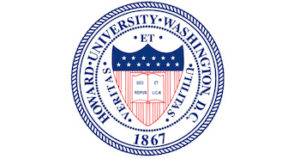
On this date, in 1867, Howard University, one of over 100 Historically Black Colleges and Universities (HBCUs) in America, was founded.
General Oliver O. Howard established Howard Theological Seminary in an abandoned dance hall today called Howard University. From its outset, it was nonsectarian and open to people of both sexes and all races. With a campus covering 89 acres in northwest Washington D.C., more than 11,000 students, including 7,000 undergraduates, are enrolled there, and 88 percent are black.
Howard University has played an essential role in American history and the American Civil Rights Movement on several occasions. A few blacks allied with Civil Rights and Howard are Alain Locke, chair of the Department of Philosophy and the first African American Rhodes Scholar, who wrote "The New Negro," which helped usher in the Harlem Renaissance. Ralph Bunche, the first Black Nobel Peace Prize winner, was chair of the Department of Political Science. Stokely Carmichael (Kwame Toure), a Department of Philosophy and the Howard University School of Divinity student, coined the term "Black Power" and worked in Lowndes County, AL, as a voting rights activist.
Historian Rayford Logan served as chair of the Department of History. E. Franklin Frazier served as chair of the Department of Sociology. Sterling Allen Brown served as chair of the Department of English. Lincoln University graduate Thurgood Marshall wanted to apply to his hometown law school, the University of Maryland School of Law, but was denied enrollment because he was black. Marshall enrolled at Howard University School of Law instead, where he studied under Charles Hamilton Houston, a Harvard Law School graduate and leading civil rights lawyer who was the dean of Howard's law school at the time. Houston took Marshall under his wing, and the two forged a friendship that would last for the remainder of Houston's life. Howard University was where Marshall and his team of legal scholars from around the nation prepared to argue the landmark Brown v. Board of Education case. The first black president of Howard was Mordecai Wyatt Johnson.
In 1989, Howard gained national attention when students protested against the appointment of then-Republican National Committee Chairman Lee Atwater as a new member of the university's Board of Trustees. Atwater had run Sen. Strom Thurmond's campaign. During his years in South Carolina, Atwater became well known for running hard-edged campaigns based on emotional wedge issues--essentially "dirty tricks." Student activists disrupted Howard's 122nd-anniversary celebrations and eventually occupied the university's administration building. Within days, Atwater and Howard's President, James E. Cheek, resigned. (When Atwater became fatally ill, he became a Catholic and repented, apologizing to some of the people he had so harshly opposed.)
In April 2007, the head of the faculty senate called for the ouster of Howard University President H. Patrick Swygert said the school was in a crisis, and it was time to end “an intolerable condition of incompetence and dysfunction at the highest level.” Several departments faced the loss of accreditation.
On May 7, 2008, Howard announced the appointment of Sidney Ribeau of Bowling Green State University to the presidency of Howard.
Today, it is a member school of the Thurgood Marshall Scholarship Fund and is partially funded by the U.S. government, which gives approximately $235 million annually. Past Alumni include Pauli Murray and Kamala Harris. Today, it has become America's largest predominantly African American university.
Black American Colleges and Universities:
Profiles of Two-Year, Four-Year, & Professional Schools
by Levin Hill, Pub., Gale Group, 1994
ISBN: 0-02-864984-2
